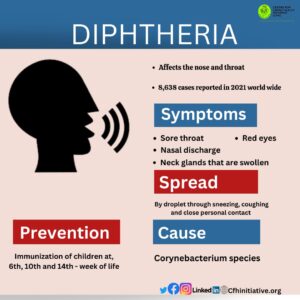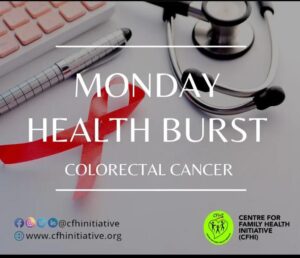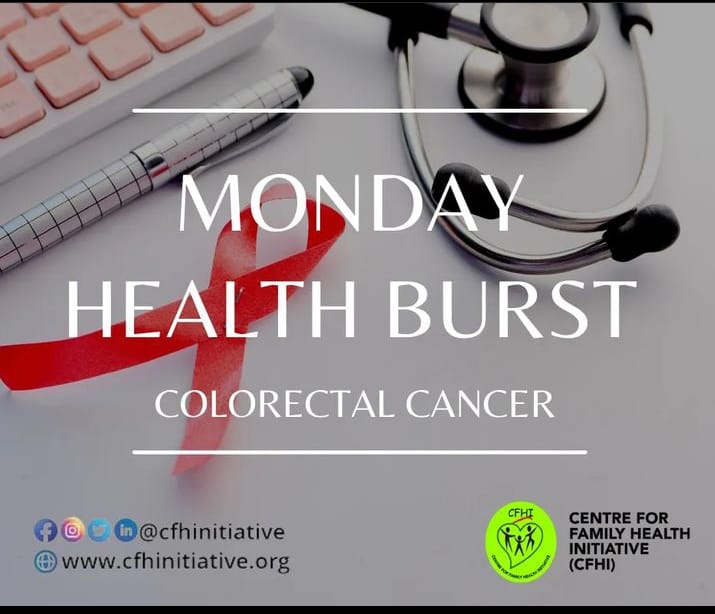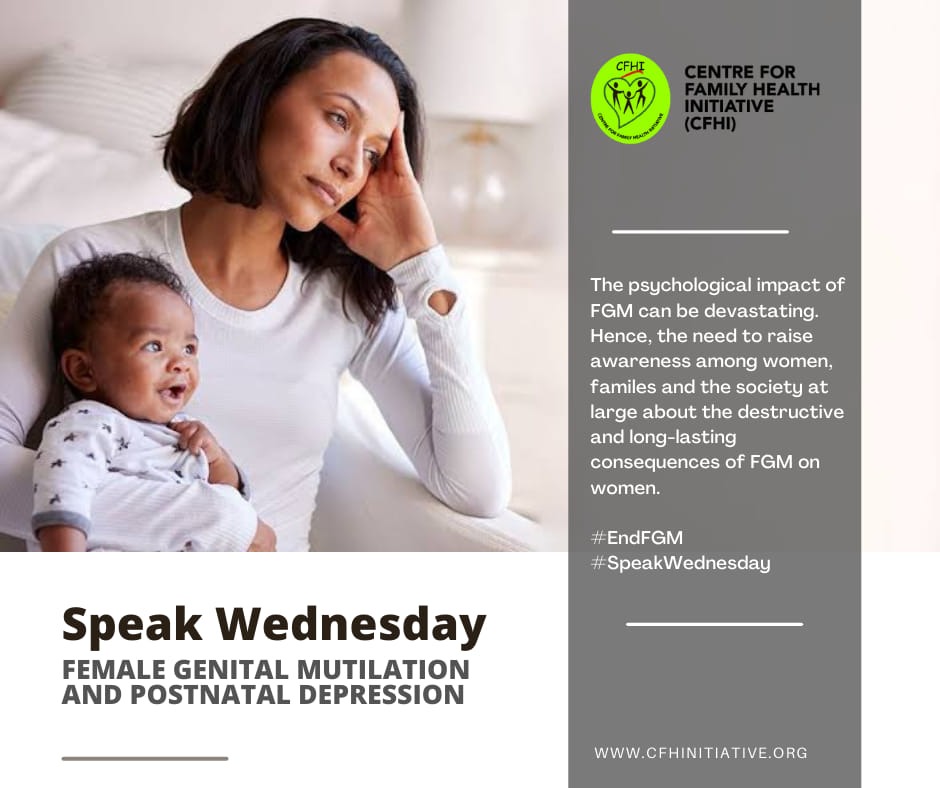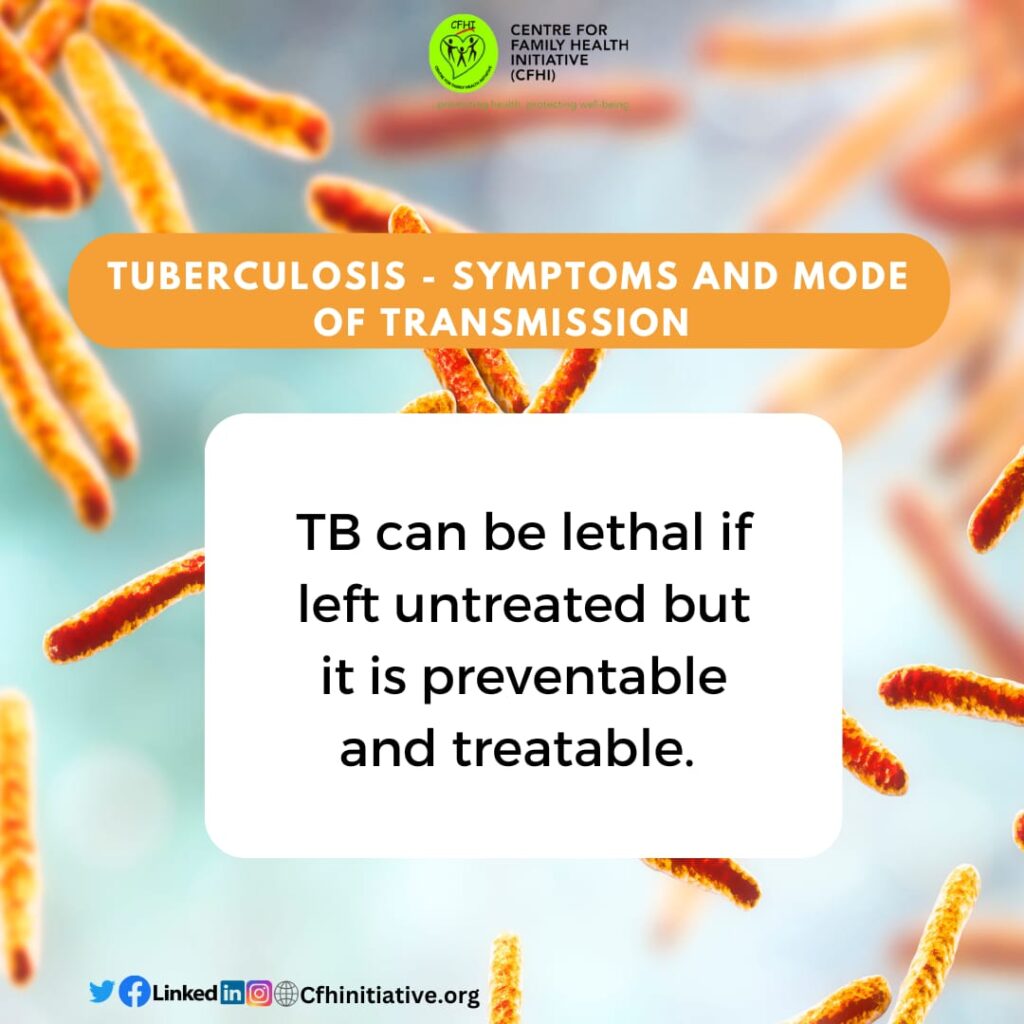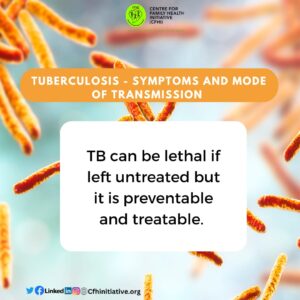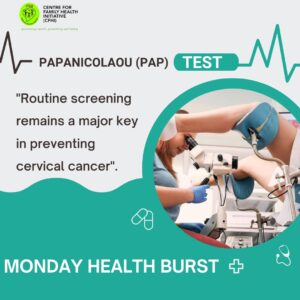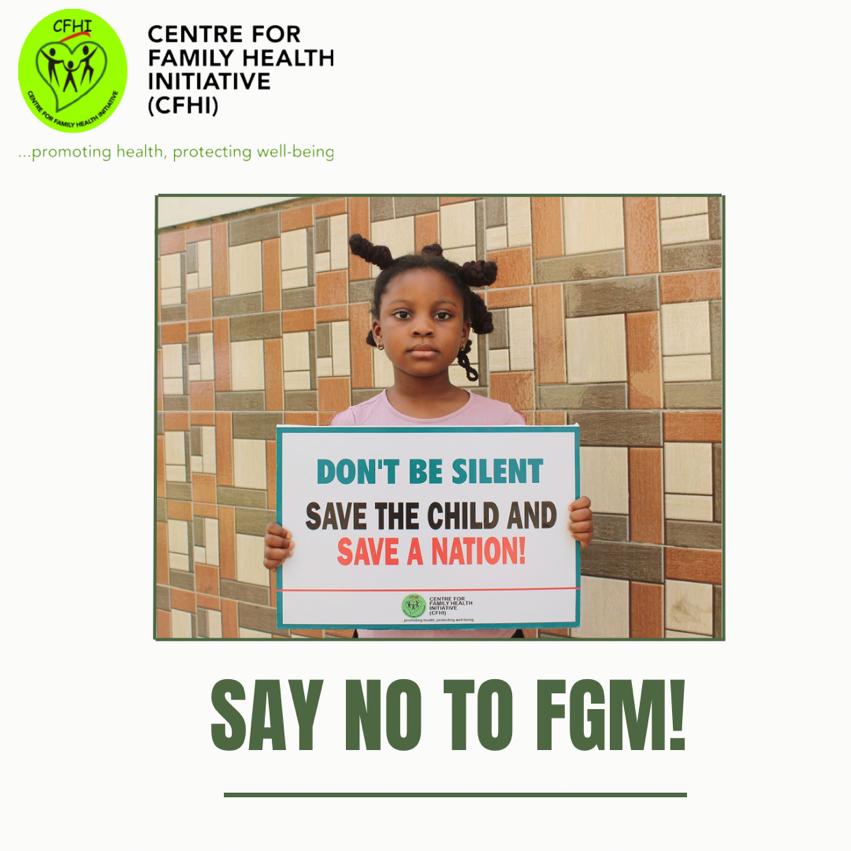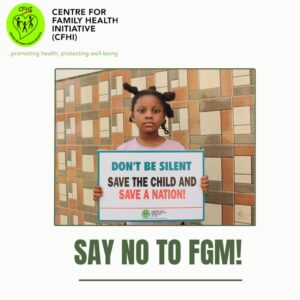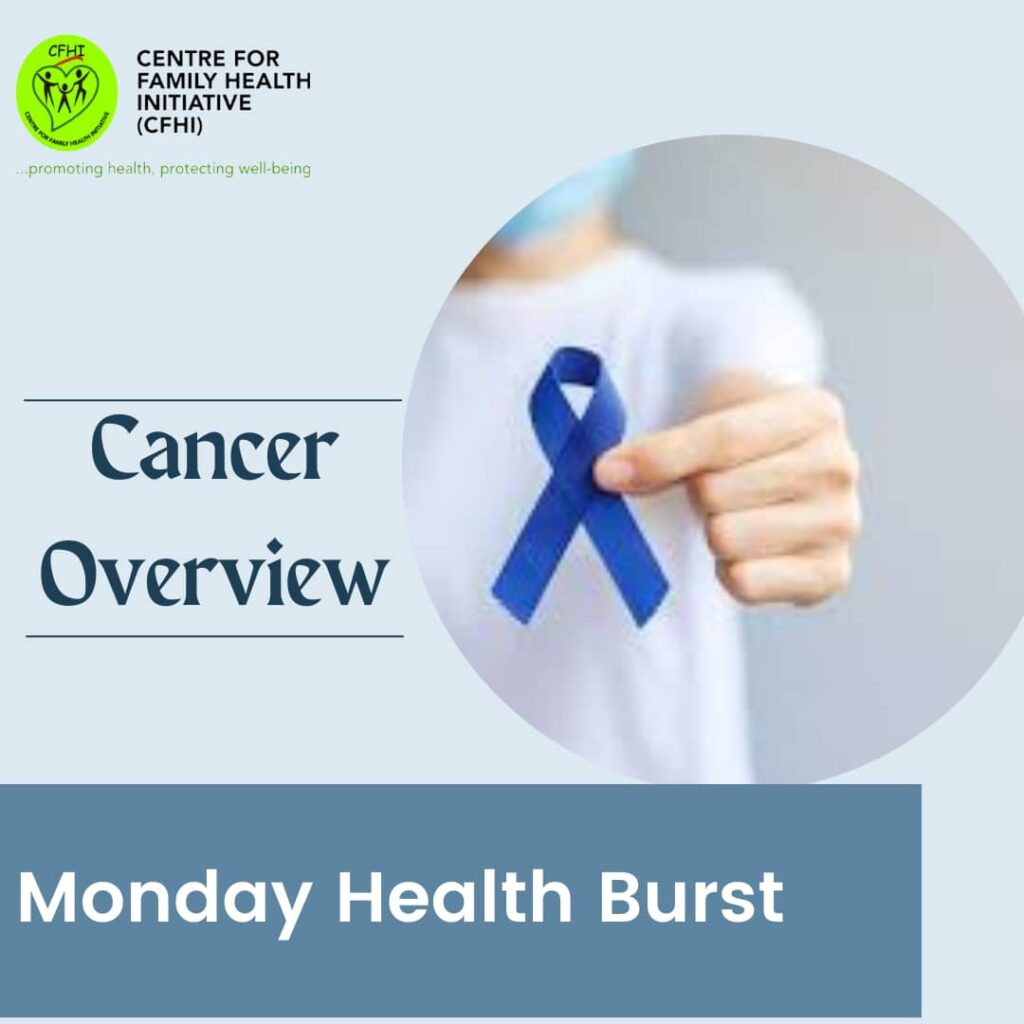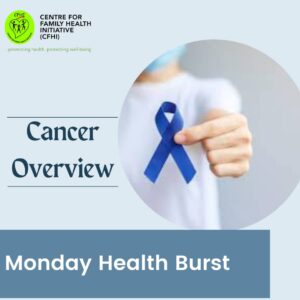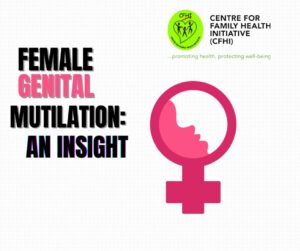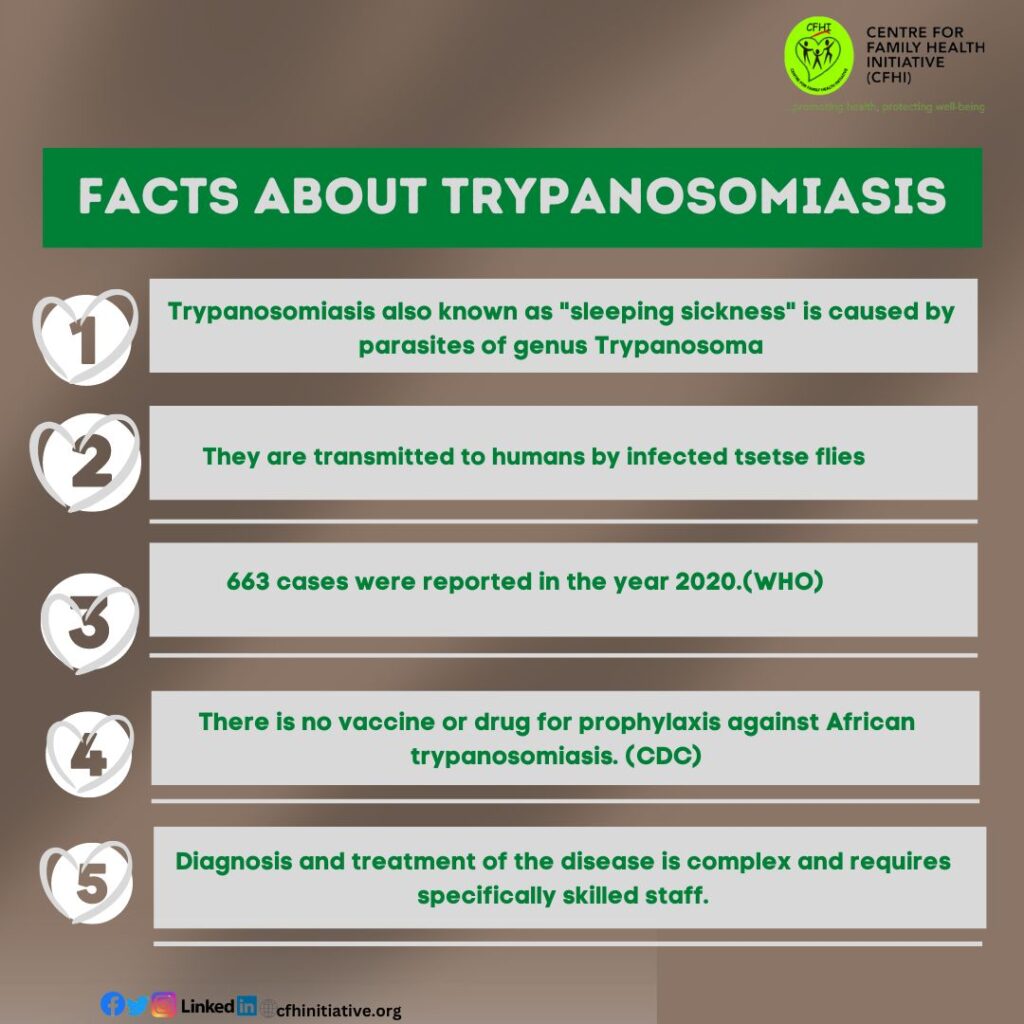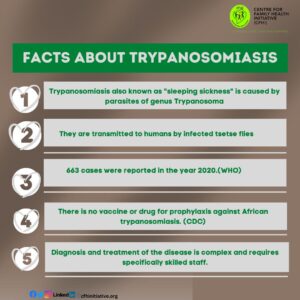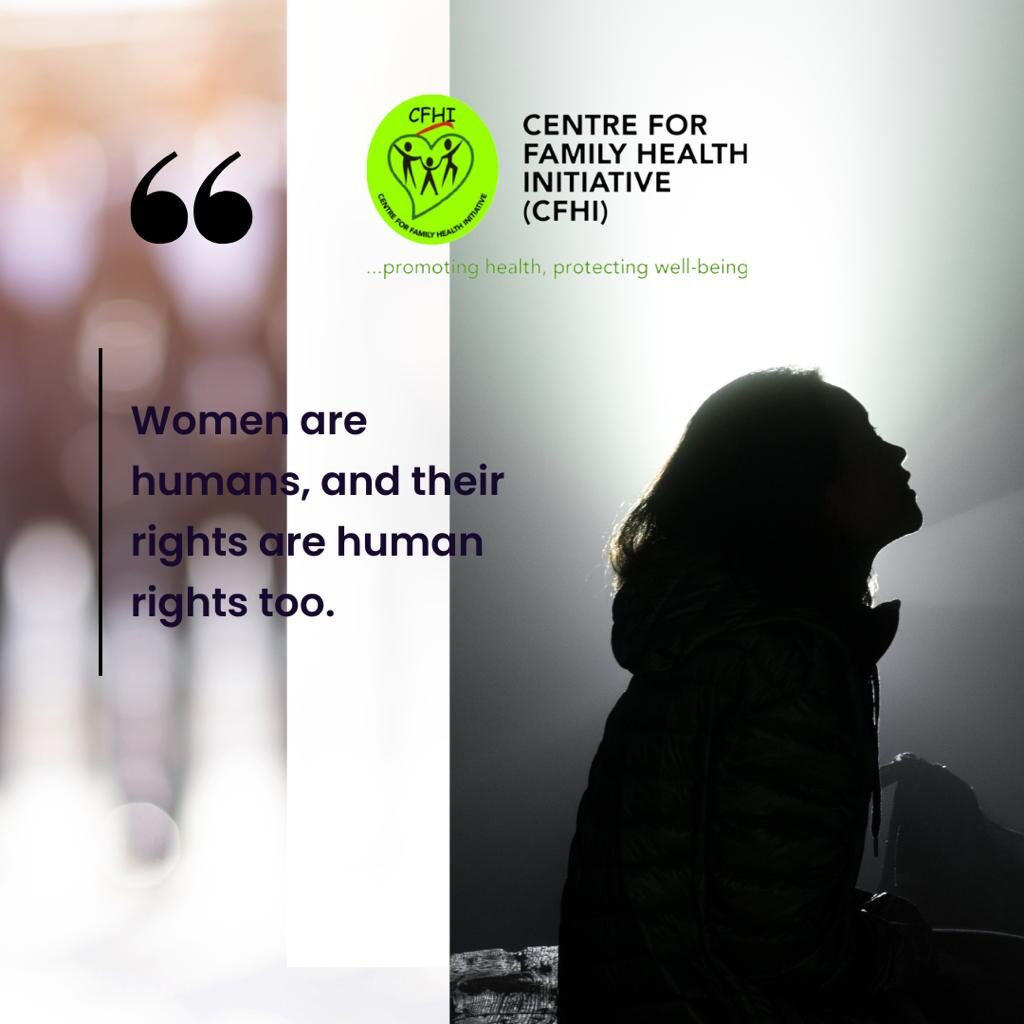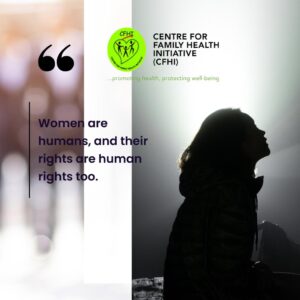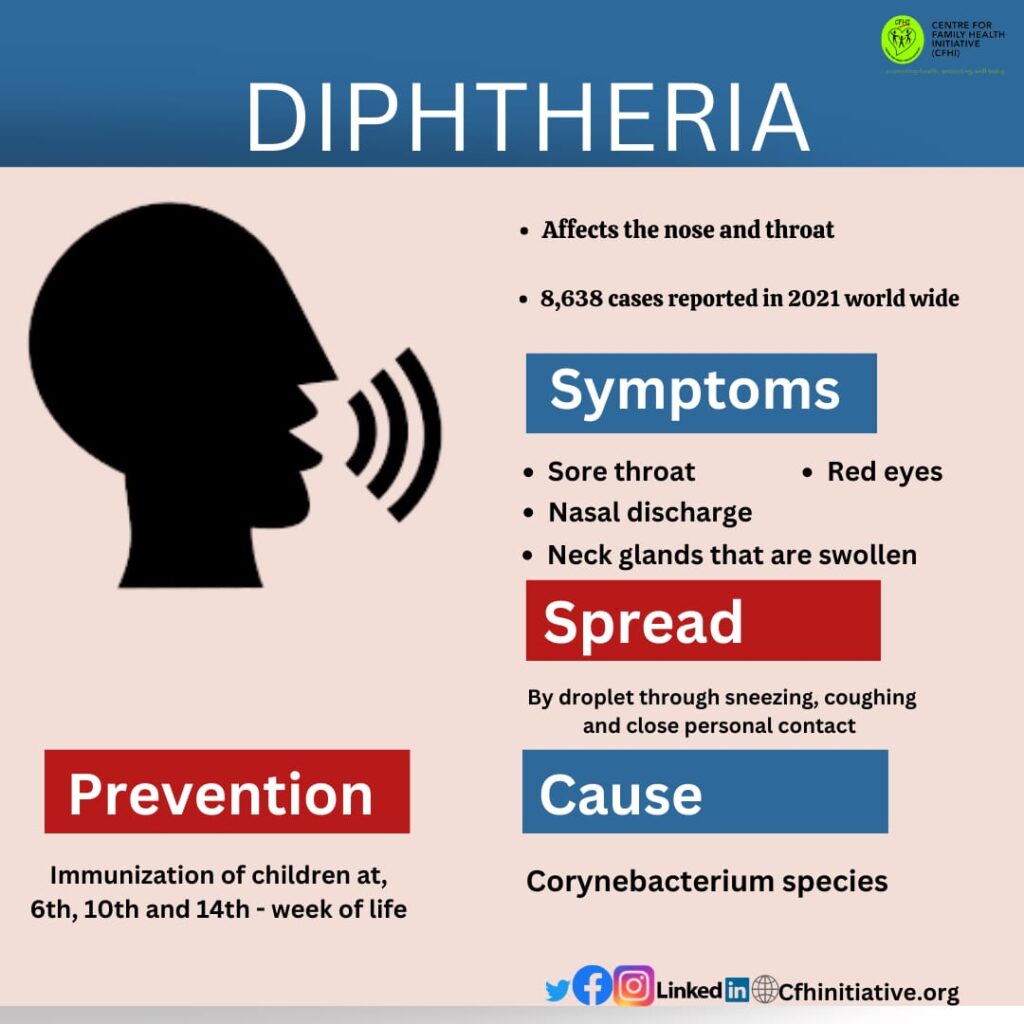Diphtheria is a serious bacterial infection caused by the bacterium called Corynebacterium species that affects the nose, throat and sometimes, skin of an individual.
According to World Health Organization, In 2021, a total of 8,639 cases of diphtheria were reported worldwide.
Diphtheria may lead to paralysis, heart failure, or breathing difficulties. In some cases, it might even be lethal (Medical news).
According to Nigeria Centre for Disease Control and Prevention (NCDC), the onset of signs and symptoms usually starts after 2 – 10 of exposure to the bacteria.
Symptoms
. In severe cases, a thick grey or white patch appears on the tonsils and/or at the back throat associated with difficulty breathing.
. Hoarseness and a painful throat
. Neck glands that are swollen (lymph nodes)
. Nasal discharge
. Fever
. Tiredness
. Red eyes (Conjunctivitis)
Some persons who contract diphtheria-causing germs simply experience a mild sickness or have no outward signs and symptoms at all.
Diphtheria germs typically pass from person to person through respiratory droplets such as those from coughing or sneezing. Additionally, contact with infected open sores or ulcers might make someone ill. Those who are more susceptible to illness include:
. People who live with the patient.
.People who have had frequent, close contact with the patient in the past.
. People who have been directly exposed to secretions from the patient’s suspected infection site, such as their mouth or skin (Center for Disease Control and Prevention).
Following the recent outbreak of Diphtheria in Nigeria, Parents should ensure that their children are fully vaccinated against diphtheria with three (3) doses of the pentavalent vaccine as recommended in the childhood immunization schedule and all healthcare workers with higher exposure to cases of diphtheria should be vaccinated against diphtheria.
PREVENTION IS BETTER THAN CURE!
#MondayHealthBurst #diphteria #SymptomsandCauses
